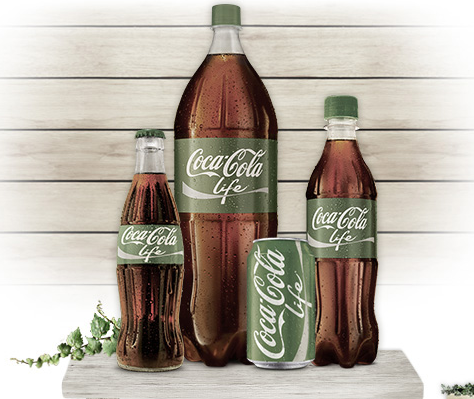I’d be willing to bet that all my readers have heard the phrase “going green”; but what does “going green” even mean? Is there a quota companies have to hit to claim they are going green? Or some regulation of the phrase in marketing? “Going green” is actually a marketing tactic adopted by companies as the ideas of sustainability became more mainstream, but there is no real significance of the phrase.

Companies have discovered that if they turn their products green, they will appeal to a wider audience and, therefore, get more sales. They use words like “plant-based”, “clean”, “pure”, “natural”, “green”, and more to create the image of an environmentally friendly product, but the products are not necessarily as environmentally friendly as the packaging may make it seem. There is even a term for it: greenwashing. Products may hold up to some of their claims, but it is still greenwashing if the company makes no other efforts to be sustainable.
A great example of this phenomenon is when a hotel told their customers to use less towels in order to be more sustainable. While their claim is true that doing less laundry is more sustainable, the hotel did this in order to reduce the cost of laundry. They made no other efforts to be sustainable except for telling people to use less towels (which is convenient considering that it saves them a lot of money).
When I noticed a shift in products being offered to more “green” products, I was excited. I thought that big companies were finally starting to adopt policies that would help in sustainability. Little did I know that most of these campaigns were not actually companies changing their ways but rather a way to mark up prices for the same product.

The FTC has cracked down on some greenwashing. There are regulations about how companies may advertise their products, such as needing to back up claims with evidence and ensuring that their claims are non-deceptive. Despite these efforts, many companies are still able to get away with greenwashing. For example, the product Coca-Cola Life being green and containing the word “life” might lead consumers to believe that this product is more eco-friendly than regular Coca-Cola. In actuality, it just is a reduced calorie version of Coca-Cola.
This may beg the question of how we can shop for more sustainable products and not be tricked by misleading marketing. One of the main ways to find greenwashing is looking for vague buzzwords that actually have no claim behind them such as “pure”, “natural”, “non-toxic”, and “clean”. Additionally, having packaging that is green and has natural imagery without any substantial claims is another sign that the product is greenwashed. Researching brands is time-consuming, but it is another way to find companies that are actually sustainable.

At the end of the day, it should not be the responsibility of the consumer to have to weed through hundreds of misleading marketing to find a true sustainable product. One of the best ways you can fight against green-washing is to fight for legislation to make marketing have to be more clear and transparent.
I feel like it gets harder and harder to spot when this greenwashing occurs. Every company seems to have adopted a strategy of going green or becoming sustainable but if that was the case we would be seeing a drop in greenhouse gases or other pollutants. I’m sure these vague statements have tricked me before but hopefully I can notice this moving forward and look for actual sustainable products.
I really enjoy the topic of your blog! Climate change and environmental issues should be at the forefront of our concerns in my opinion, so I think it’s great that you’re able to educate us in this way. I actually went through a phase a couple years ago where I did a lot of research about how to be a more sustainable individual, and the topic of greenwashing definitely came up. You described the phenomenon very well; oftentimes the companies who have the most negative impacts on the environment frame their packaging with claims that they are sustainable and green in order to trick the consumer. One time I even saw a detergent bottle that appeared to be made of cardboard, so it would be recyclable. However, inside of the cardboard, there was a plastic bottle. Greenwashing at its finest! Great entry, and I can’t wait to read what else you have to say about sustainability.
Every time I’m in the grocery store I am amazed by how many brands are trying to greenwash. It’s insane. Anything from laundry detergent to soda to chips can be impacted by this strange phenomenon. Your point about voting and writing your legislators is incredibly important and perhaps the only solution here — we should all be green. Not to get richer, but to help our environment and combat climate change. Very strong post! The images were very well chosen.
I definitely notice greenwashing whenever I go to the store, and deception in marketing is prevalent not just in terms of sustainability, but also in terms of healthfulness, flavor, etc. It’s awfully easy to trick consumers into thinking a product is what it isn’t, especially using cues such as the color green or buzzwords that could contribute to subliminal messaging. The fact that hotels only encourage clients to use less towels with an ulterior motive to save money on laundry is pretty demonstrative of how most companies really don’t care about the environment unless it is convenient for them. I even feel myself falling for the marketing sometimes. If I need to pick something up at the store and I don’t have time to do research, I will pick the greener-looking product when choosing among options. I should definitely try to be more cognizant of what I purchase, but the genuinely sustainable products tend to be pricey. That is a whole other can of worms to be explored.